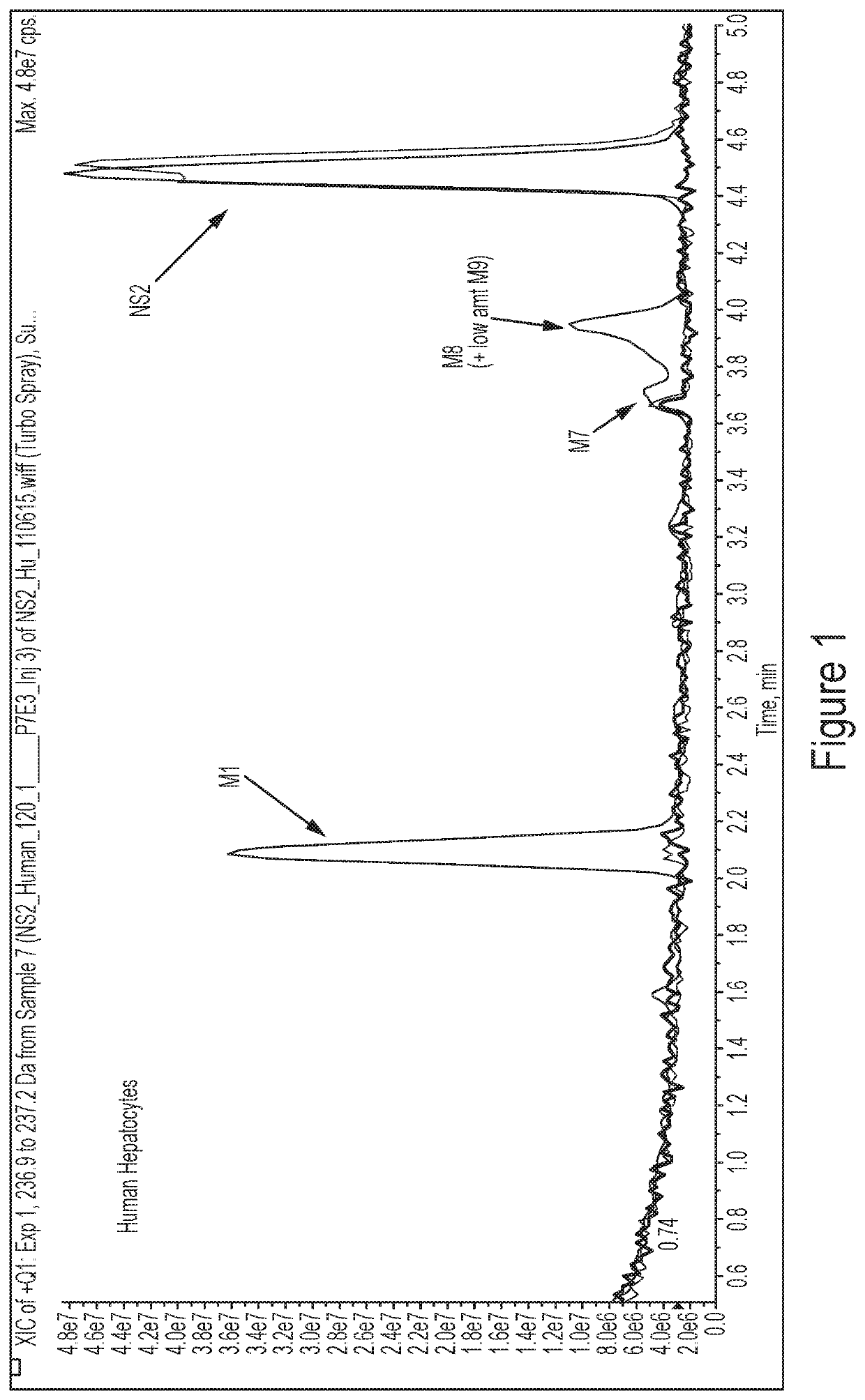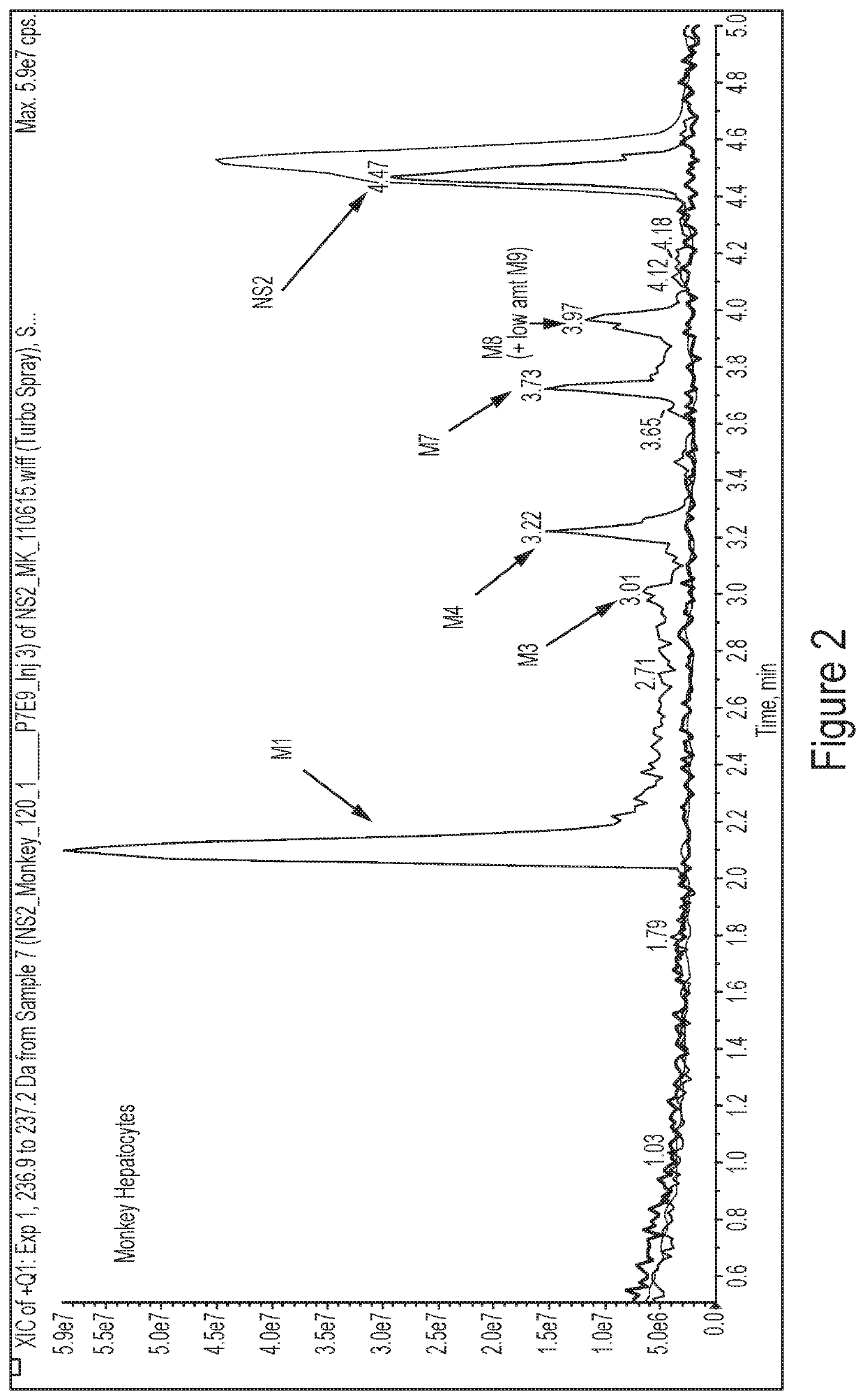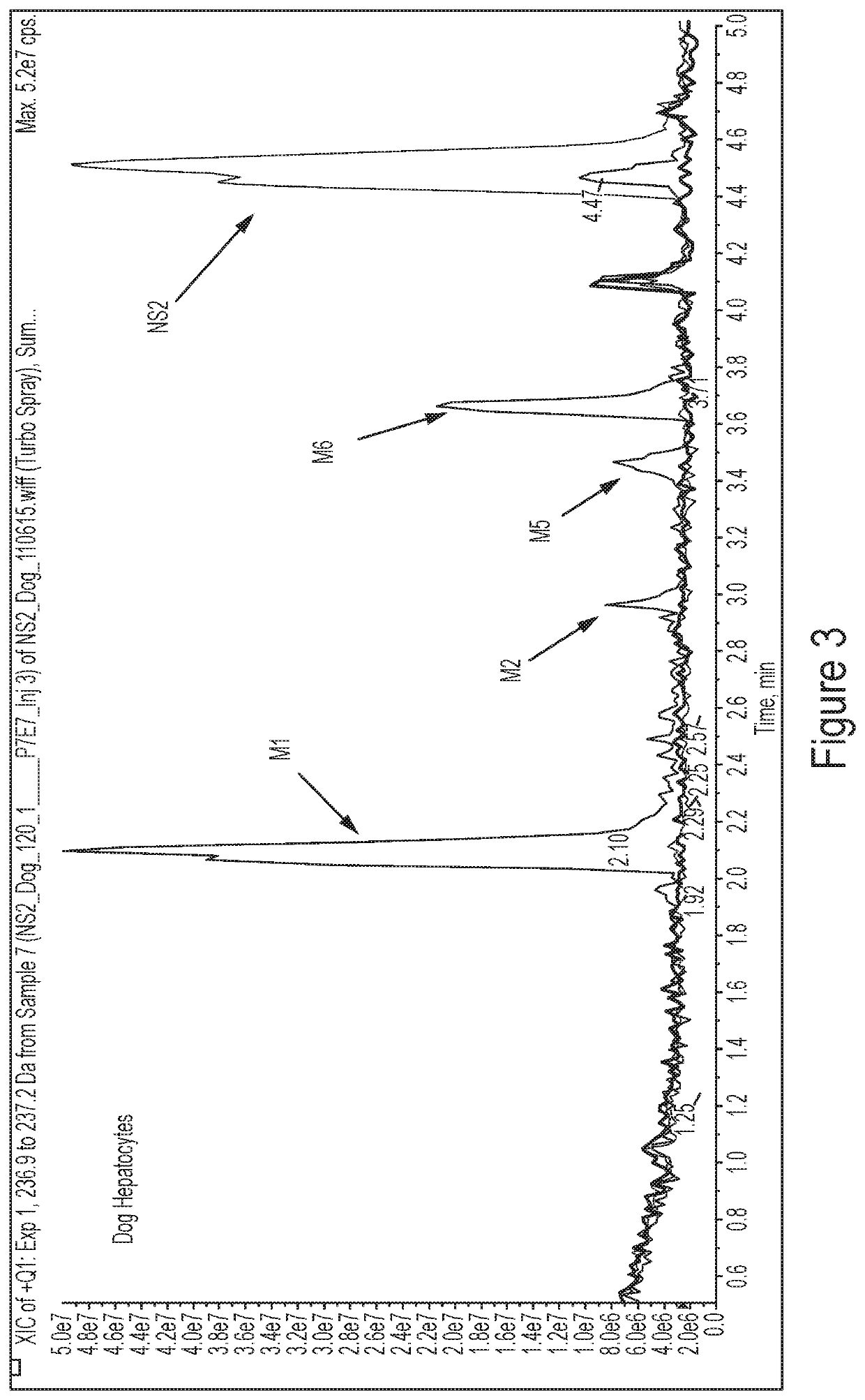Deuterated compounds and uses thereof
a technology of deuterated compounds and compounds, applied in the field of deuterated compounds, can solve the problems of increased lipid peroxidation, toxic consequences, and associated aldehyde generation, and achieve the effects of reducing the risk of disease, preventing, and/or treating the diseas
- Summary
- Abstract
- Description
- Claims
- Application Information
AI Technical Summary
Benefits of technology
Problems solved by technology
Method used
Image
Examples
example 1
eaction Sequence for Compounds
[0243]Deuterium-labeled aldehyde trapping agents were made as described in U.S. patent application publication US 2013 / 0190500, published Jul. 23, 2013, optionally using deuterium-labeled intermediates at the sites indicated in Scheme 1. Exemplary methods are described further below.
[0244]
example 2
of A-1
[0245]
1-(3-ethoxy-2,3-dioxopropyl)pyridin-1-ium bromide
[0246]To a 2 L round bottom flask was charged ethanol (220 mL) and pyridine (31 g, 392 mmol), and the resulting solution was stirred at a moderate rate of agitation under nitrogen. To this solution was added ethyl bromopyruvate (76.6 g, 354 mmol) in a slow, steady stream. The reaction mixture was allowed to stir at 65±5° C. for 2 hours.
example 3
of A-2a
[0247]
1-(6-chloro-2-(ethoxycarbonyl)quinolin-3-yl)pyridin-1-ium bromide
[0248]Upon completion of the 2 hour stir time in Example 2, the reaction mixture was slowly cooled to 18-22° C. The flask was vacuum-purged three times at which time 2-amino-5-chloro-benzaldehyde (ACB) (50.0 g, 321 mmol) was added directly to the reaction flask as a solid using a long plastic funnel. Pyridine (64.0 g, 809 mmol) was added followed by an EtOH rinse (10 mL) and the reaction mixture was heated at 80±3° C. under nitrogen for about 16 hours (overnight) at which time HPLC analysis indicated that the reaction was effectively complete.
PUM
| Property | Measurement | Unit |
|---|---|---|
| temperature | aaaaa | aaaaa |
| temperature | aaaaa | aaaaa |
| volume | aaaaa | aaaaa |
Abstract
Description
Claims
Application Information
 Login to View More
Login to View More - R&D
- Intellectual Property
- Life Sciences
- Materials
- Tech Scout
- Unparalleled Data Quality
- Higher Quality Content
- 60% Fewer Hallucinations
Browse by: Latest US Patents, China's latest patents, Technical Efficacy Thesaurus, Application Domain, Technology Topic, Popular Technical Reports.
© 2025 PatSnap. All rights reserved.Legal|Privacy policy|Modern Slavery Act Transparency Statement|Sitemap|About US| Contact US: help@patsnap.com



